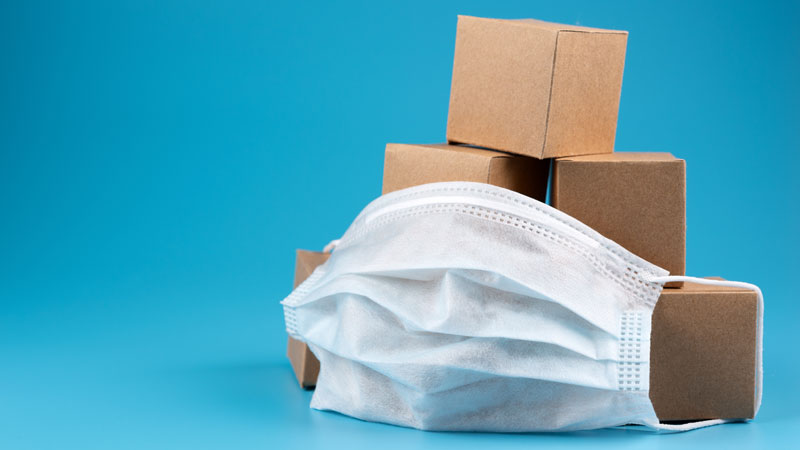Improving COVID19 procurement to increase equitable access to medicines and medical equipment

The ‘Improving COVID19 procurement to increase equitable access to medicines and medical equipment’ is an 18 month project being conducted in partnership with the Open Contracting Partnership, and is funded by the Open Society Foundation.
COVID-19 pandemic has put the world in crisis mode, with governments at all levels across the world mobilized to purchase the urgently needed medical supplies and equipment to fight the virus. Unfortunately, this situation is exacerbating pre-existing challenges that have faced public contracting systems for many years, with governments struggling with low levels of transparency, digitization, and coordination.
In normal times public procurement is already government’s number one corruption risk. Emergency medical procurement is even riskier due to rushed processes, complex requirements, sole sourcing, prepayment, and a general lack of scrutiny. We have already seen many cases of corruption in COVID-19 medical procurement and we risk a ‘hunger games’ scenario as hospitals, public health agencies, subnational and national governments compete with each other for ventilators, diagnostics, N95 masks, and, soon, vaccines, and therapeutics. If the wrong type or low-quality goods are being bought, not only will resources be wasted, but medical professionals and patients will be put at risk.
Increased oversight is needed to help improve transparency, accountability, and integrity in COVID19-related procurement, and ensure frontline workers and patients get the help they need.
The main objective of the project is to ensure accountability and integrity in COVID19-related procurement.
The project will have the following outcomes:
- Strong, empowered network of partners across key countries with the capacity and confidence to conduct monitoring of specific tenders, as well as and systemic monitoring of COVID-19 procurement processes, and a strong theory of change locally on how to get to impact;
- Smart, targeted advocacy to ensure the establishment of clear reporting rules, responsibilities, and safeguards on COVID-19 emergency procurement;
- A standardised and scalable approach to monitor COVID-19 procurement developed with partners, and used to drive evidence-based and data-driven changes to public procurement and healthcare policies;
- Loopholes, inefficiencies and good or bad practices in contracting processes and policies are identified and addressed;
- OCP and TI track impact and document learning, and support replication of approaches are replicated elsewhere.
The implementing countries will be Moldova, Kyrgyz Republic, Mexico, UK and Kenya. Additionally Ukraine and Colombia will be involved as learning countries. TI Chapters in Kyrgz Republic, Kenya, UK, Mexico, Ukrain and Colombia will be responsible for in country implementation.
In each partner country, we will support partners across five principal streams:
- Stream 1: Capacity and community building,
- Stream 2: Advocacy at the national and global level,
- Stream 3: Developing monitoring methodology and tools,
- Stream 4: Data collection and monitoring of COVID19 related procurement, and
- Stream 5: Monitoring, Evaluation and Learning
Under Stream 1, OCP and TI-HI will develop capacity of implementing partners to pursue this project.
Under Stream 2, we will work with partners to identify immediate opportunities and develop advocacy at the national level, aimed at shaping the response and guaranteeing timely data disclosure and good governance of COVID19 procurement. Longer-term, we will also work with partners to support advocating for their research findings and policy advice at the national level, as well as advocating for improved COVID19 and emergency procurement processes at a global level based on the findings of the overall project.
Under Stream 3, we will work with partners to undertake data scoping including a rapid assessment and harvesting of key data sets, as well as identification of gaps and assessment of relevant use cases. We will then design a tool and methodology to collect relevant data based on this scoping, and train country partners on data collection, monitoring, and use. We will also work closely with country partners to ensure customization to their national contexts.
Under Stream 4, partners will collect data and feed the tool, and we will work with them to ensure quality control and support data cleansing. This will be supported by training and support to partners around both ad-hoc or procedural monitoring for individual contracts, and development of a research methodology to systematically monitor and analyze overall COVID19 purchases. The national-level research projects will be compiled into global products to present the findings, and policy papers developed to advise on future emergency procurement.
Stream 5 will focus on documenting project progress and adapting along the way, as well as documenting learnings to share with the global community. We will aim for regular sharing and learning among peers, and for all resources to be open source and documented to allow for adoption and reuse by external partners from the broader community.